Revive



Dear reader,
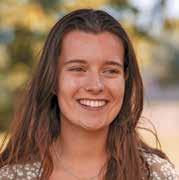
Thank you for picking up a copy of Revive.
It was a joy to see many of you at our conference in July. I hope, like me, you were inspired by our keynote speakers and workshop leaders who spoke powerfully about what it means to be ‘United Beyond Borders’. In this edition, we will take a deeper look at that theme. You’ll meet the new Communion-Wide Advisory Group who gathered in Malaysia to accompany, advise and inform our work (pages 6-7). There’s also a chance to read about our Emerging Leaders Academy and the incredible young people who are part of this uniquely cross-cultural learning programme (pages 18-19).
Hear too why Jackie Elton, a participant of our former Experience Exchange Programme, can confidently say that “USPG changed my life” on page 12, or why The Revd David Ridley thought it was a “no-brainer” (page 14) when the opportunity to host Ukrainian refugees came about.
If the themes of migration and movement interest you, then you may like our updated resource – United Beyond Borders – a five-week study course for churches, clergy study days or small groups. Find it online at uspg.org.uk or get in touch to order some free copies.
Whether you’re new to USPG or have faithfully supported for years, thank you for journeying with us. May you continue to be inspired by the ways in which God is working across the world in and through His people.
Rachel Weller Editor, Revive Communications Officer, USPG

Got a story or some feedback to share? We love to hear from you so please get in touch at communications@uspg.org.uk
“What does it mean to do mission in an increasingly bordered world?” That was the question posed to us by the Episcopal priest and womanist theologian The Very Revd Dr Kelly Brown Douglas at our 2024 conference. An undeniably pertinent one too. Only a few weeks after the conference in Hertfordshire, we witnessed violent riots across the UK peddled by racist, anti-Semitic and Islamophobic lies. As the horrors unfolded, many communities were left feeling fearful and frightened.
At USPG, we stand united against hate. I’m increasingly convinced that one of the best ways to achieve this is to lean on our ability to convene. In short, to come together, listen and learn from others. This power to convene is not just a logistical achievement, as demonstrated by the remarkable presence of all 13 bishops from the Internal Province of Ghana at strategic planning meetings (page 9). Rather, to gather means to nurture relationships and inspire collective action as in the case of the Oceania Regional Advisory Committee (page 8) and the Asia Theological Accompaniment Programme (page 20).
We have also brought together new voices on a governance level, namely the recently commissioned Communion-Wide Advisory Group, and our new Trustees. I look forward to working with colleagues and our global church partners to move away from a rhetoric of hate, and towards the greater truth of peace, for perfect love casts out fear (1 John 4:18).
Thank you for your continued support.
The Revd Dr Duncan
Dormor General Secretary and Chief Executive, USPG
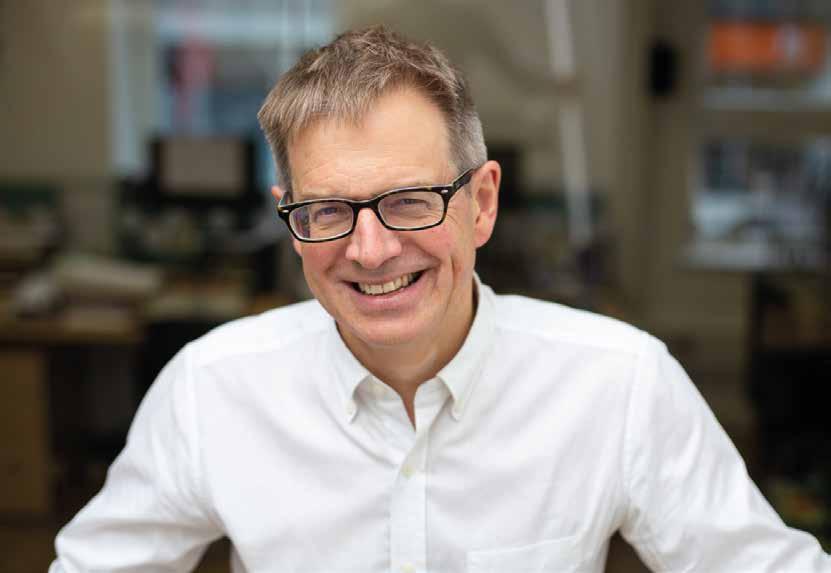
From hosting a coffee morning to welcoming those not already familiar with USPG at a diocesan event, there are lots of different ways to raise awareness and support. Volunteers’ Week in June was the perfect chance to honour and recognise all who give up their time and talent to support us. We kicked off the week with an international food lunch in the office before hitting the road and heading up north. We had a lovely time meeting some old, and new, faces in Leeds and Liverpool at regional gatherings. Thank you to everyone who joined us – read some of the inspiring stories we heard on pages 14-15.
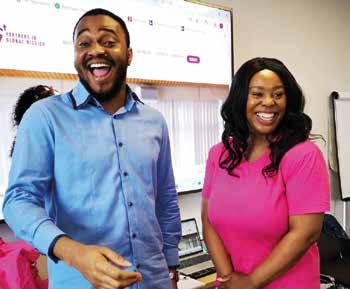
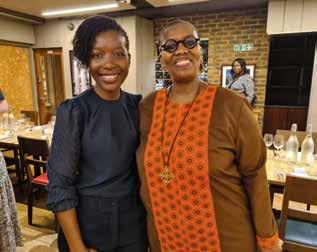
New to the USPG calendar is a series of ‘In Conversation’ dinners which bring together leading figures on key topics facing the Anglican Communion. Most recently, it was wonderful to hear from The Rt Revd Dr Vicentia Kgabe, Bishop of Lesotho, who spoke on the role of women in leadership across the Anglican Church in Africa alongside The Rt Revd Filomena Teta das Neves Estevão, Angola’s first female bishop. We hope these events will continue to be spaces for conversation and mutual learning.
For news as it happens, don’t forget to follow @USPGglobal

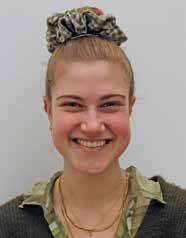
We recently welcomed Tashi to the team. Her professional background is in the start-up industry, where various HR positions enabled her to gain experience of managing all aspects of the employee lifecycle from recruitment to retention. They also helped Tashi discover and develop her interest in HR strategy and staff well-being, which she is eager to put into practice at USPG.
When not working, Tashi is an avid walker, reader, and podcast-listener. She holds a combined degree in Psychology & Studies in Religion.
Congratulations to all of our runners who took part in the London Landmarks Half Marathon in support of USPG. They raised an amazing amount of money for the charity and we are so grateful to them. Our General Secretary, The Revd Dr Duncan Dormor and Regional Coordinator, Nadia Sanchez also took on the challenge. There’s a chance to sign-up for 2025 if you, or someone you know, is interested. Check the back page for more details.



Thank you! Your incredible generosity in support of our Lent Appeal has made a real difference in the lives of all those reached through CASA A+, a sanctuary of hope and healing for those with HIV in the Diocese Anglicana de Brasília. “Together we are making a huge difference” The Revd Magela.
In July, we hosted a fringe event at the Church of England General Synod in York. In the wake of the UK General Election, our roundtable event considered how the Church might influence the national debate surrounding immigration and asylum as it progresses under new leadership.
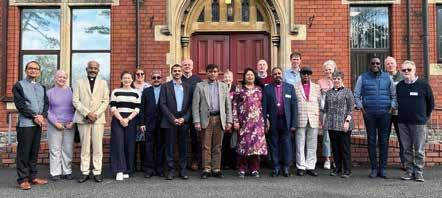
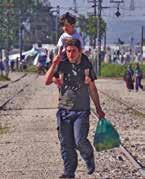
Earlier this year, it was a great joy to come together with partners from the Church of North India, Church of South India, Church of Pakistan and the Church of Bangladesh, as well as other agencies and link dioceses for the South Asia Forum. Hosted at Hebron Hall in Wales, this time of fellowship was inspired by rich conversations, sharing of experiences and sharing of vision for enhancing mission in South Asia.
We are thrilled to announce the appointment of our four new members to the USPG Board of Trustees. These dedicated individuals bring a wealth of experience and passion for global mission, and we can’t wait to see the positive impact they will make. Find out more about them at www.uspg.org.uk.


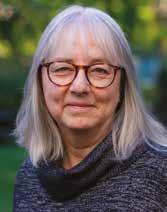
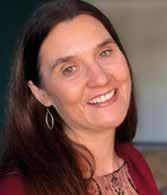
Rachel Weller, Communications Officer, reflects on USPG’s inaugural Communion-wide Advisory Group meeting in Kuching, Malaysia.
As a UK-registered charity that partners with churches across the world, USPG needs diverse global voices to accompany, advise and inform our service to Christ and the Anglican Communion. That’s where the Communion-Wide Advisory Group (known as CWAG) come in.
Comprising of church leaders and representatives from across the Anglican Communion, the newly appointed CWAG met together for the first time in Kuching, Malaysia in March 2024. Hosted by The Rt Revd Danald Jute and the Bishop of Kuching, the meeting offered members the opportunity to get to know each other, familiarise themselves with USPG’s strategic plans for the next five years, and discern ways in which CWAG can continue to effectively accompany USPG’s work in the coming years.
CWAG aims to support the work of USPG by:
• Providing advice and guidance to USPG trustees and leadership team;
• Engaging critically and constructively with USPG’s vision, mission, strategy and policy; and
• Acting as ambassadors for USPG within their regions and churches.
The group members were selected from across the Anglican Communion, taking into consideration regional balances and were appointed with the endorsement and support of their respective provinces. 1 2 3 4 5 6 7 8
The choice of Kuching as the location for this incumbent group was especially significant because of the historical links between the Society and the local diocese. One such example is St Paul’s Church in Kampung Benuk, a rural parish church nestled in the hills about an hour from downtown Kuching. When asked which church they belong to, many believers here exclaim “SPG” – a nod to the presence of SPG* missionaries in the region over 170 years ago and a telling sign of the lingering power of a global community of believers.
It was particularly special to experience the diocese’s mission firsthand through visits to local churches and schools. One highlight was a visit to the Po Ai longhouse Rumah Wilson in Sri Aman. A longhouse is a wooden structure built on stilts, with one side sectioned off into a row of separate family rooms and the other used as an open social area. It was here that we shared the Eucharist together, sung praises to God in Iban and in English and witnessed the power of the Holy Spirit to transcend culture and language. “Despite pressures from the federal government, the Church in this part of the world, in Borneo, is growing. And [this trend] is largely amongst Indigenous groups.” The Rt Revd Danald Jute later explained.
“By God’s grace, we are able to stand on our own. But we continue to need partnership and prayer.”
The
Rt Revd Danald Jute, Bishop of Kuching
Meet the group:
1 Anita Gittens, The Anglican Church of Canada
2 The Rt Revd Philip Wright, Bishop of Belize
3 The Rt Revd John Perumbalath, Bishop of Liverpool, The Church of England
The Revd Dr Duncan Dormor, General Secretary USPG
The Rt Revd Dr David Walker, Bishop of Manchester, The Church of England and USPG Chair of Trustees
The Revd Canon Dr Peniel Rajkumar, Director of Global Mission
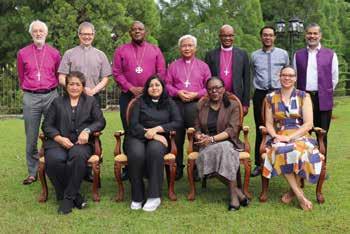
The opportunity to be present with each other in Kuching, through the sharing of food, fellowship, stories and experiences strengthened the members for the journey ahead and inspired them to find new ways of continuing to live their lives in Christ, rooted and built up in him and established in the faith, and abounding in thanksgiving (Colossians 2: 6,7). 9 10
4 The Most Revd Dr Cyril Kobina Ben-Smith, Archbishop of The Church of the Province of West Africa
5 The Revd Wadie Far, Diocese of Jerusalem
6 The Rt Revd Metlhayotlhe Beleme, Bishop of Botswana, The Church of the Province of Central Africa
7 Essie Pato, Chair of the CWAG, The Anglican Church of Southern Africa
8 The Revd Lopa Mudra Mistry, The Church of North India
9 The Rt Revd Danald Jute, Bishop of Kuching, The Church of the Province of South East Asia
10 The Revd Sonja Hunter, The Anglican Church in Aotearoa, New Zealand and Polynesia
• Thank God for His faithfulness to His Church in Borneo. Pray for the Diocese of Kuching and their ministry.
• Pray for members of CWAG and God’s enabling grace as they take up their new role in service to Christ and His global Church.
In February 2024, Ella Sibley, Regional Manager for Europe and Oceania, travelled to Cairns, Australia for the annual gathering of the archbishops, provincial staff, and mission agencies of the four provinces of Oceania. Here she reflects on her time.
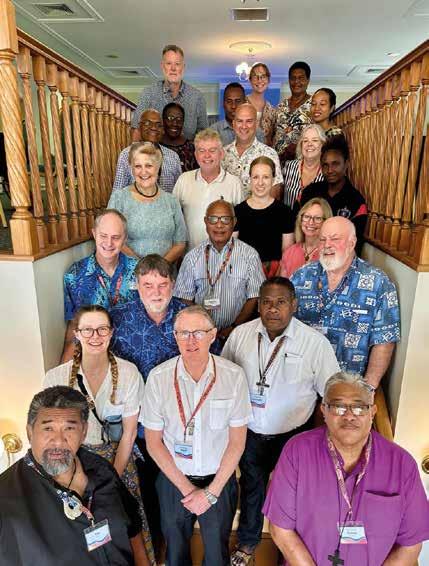
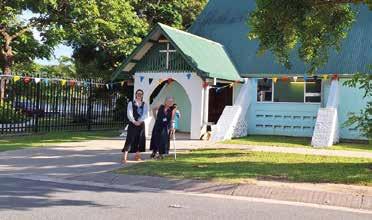
“Sapos wanfala part hem safa, evri nara part safa tu. Sapos wanfala part kasem praise, evri nara part hapi tu.” 1 Corinthians 12:26 (Solomon Island Pidgin)
This is the verse we began our week with. We read it in multiple languages – there are over 1200 languages spoken in Oceania. This verse from 1 Corinthians set the tone for our time together – a focus on sharing, collaboration, and mutual support.
The four provinces of Oceania have affirmed four shared mission priorities – disaster resilience and response, environment and climate change, safeguarding and gender justice, and Agents of Change training.
We heard stories from churches across the region, whose ministry is transforming communities in these areas, through safe houses for women, environmental monitoring, disaster response planning, and community development. The provinces and mission agencies learnt from one another’s work and planned for the future.
This is one of the greatest examples of collaboration across the Communion – a whole continent of Anglicans discerning and following the same call. This shared vision makes collaboration easy – all week, I heard offers of help and resourcing. People offering to lead training, share information, support fundraising, do design or admin work for others, and more.
We reaffirmed our commitment to one another; that when one suffers, all suffer, and when one is honoured, all rejoice together. And this verse became more than an ideal to live up to, it became a promise we made to one another. That, despite the distance, we are one body, one family, in Christ.
At the end of our week, we travelled to Yarrabah Aborigine Community to join in Sunday worship. Speeches were given in English and Māori, dances traditional to Yarrabah were taught, and the choir of St Barnabus Cathedral, Honiara, performed unaccompanied with their unique style of overlapping melodies and chants. Here we shared bread and wine beside the Coral Sea, and remembered those who had gone before and those who are yet to come, and prayed God’s blessing on our Communion.
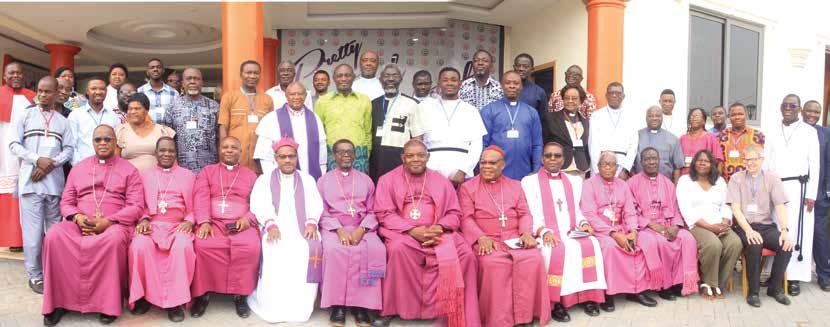
From 17-22 March 2024, USPG partnered with the Internal Province of Ghana (IPG) to host a transformative workshop in Kumasi. This event brought together each bishop from the 13 dioceses, representatives from St. Nicholas Seminary, Cape Coast, as well as other members of the Church of the Province of West Africa and USPG. All were united in the mission to support IPG in reviewing its strategic plan, enhancing diocesan capabilities, and creating a unified vision for the future.
For IPG, the autonomy of its 13 dioceses is a mixed blessing
This workshop provided a platform to address these challenges and explore ways for the dioceses to work more closely together as one church, and to prioritise unified action where possible.
On the first day, the group set clear goals. IPG highlighted the need for better collaboration, improved communication, and a focus on youth programmes and theological training for ordinands.
IPG’s strategic plan includes 13 thematic areas, each led by a diocesan bishop. However, it was raised that this broad focus makes it challenging to implement effectively. It was suggested that narrowing these thematic areas and redistributing responsibilities to other church members, including clergy and laity, would make things more effective.
Amidst the serious work, we made sure to include some fun team-building activities to strengthen the bonds between participants. One memorable challenge was balancing 14 nails on a single nail head. After several attempts, laughter, and a lot of teamwork, one group finally managed to balance the nails, celebrating their collective achievement with cheers and high-fives.
On the second day, the group explored IPG’s current vision: “to be a dynamic and united church proclaiming and transforming society with the gospel of Jesus Christ” and their mission – focused on promoting God’s Kingdom, supporting social needs, and advocating for justice and peace – were reaffirmed as fitting the current context.
Key plans included establishing clergy training at St. Nicholas Seminary, setting an annual nationwide goal of evangelism, and creating an ICT unit to manage provincial IT needs.
The final day focused on resource mobilisation and communication strategies. It was agreed that the establishment of a provincial communication directorate would help ensure information reaches all dioceses and parishes.
Earlier in the week, it was a common finding that many young people feel disconnected and uninterested in coming to church. To resolve this, IPG have committed to creating a provincial career development and mentorship programme and establishing a provincial youth and children’s ministry to connect youth across the province. Participants also discussed the importance of training on spiritual gifts and other key theological questions to help inspire and educate young people.
This workshop was a significant step in USPG’s shared journey with the Internal Province of Ghana, particularly in its ability to convene and facilitate a meeting of this scale. We are excited to see IPG grow as a united, dynamic force for good in Ghana and as part of the body of Christ worldwide.
“Unless the Lord builds the house, those who build it
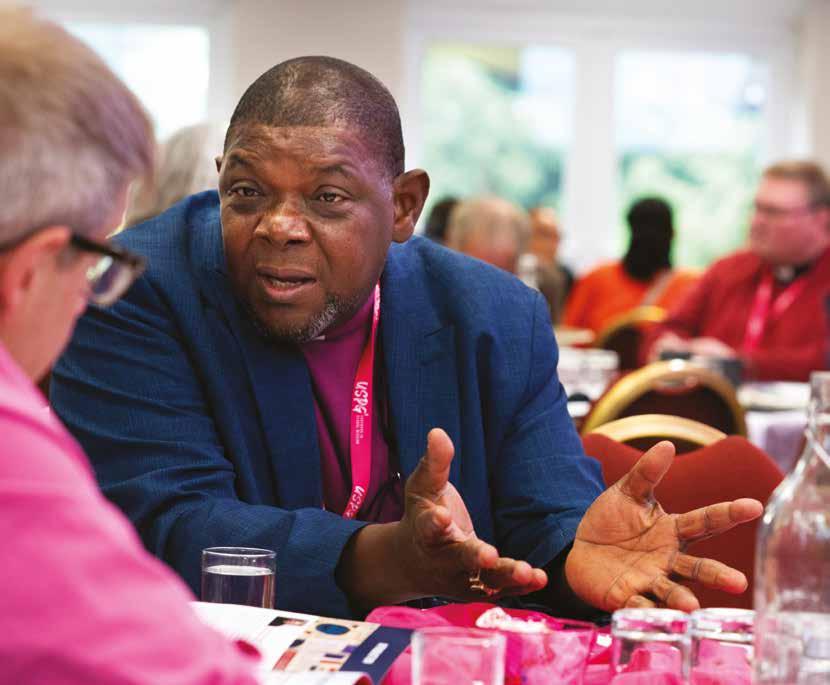
By Rachael Anderson, Senior Communications & Engagement Manager
From 9 – 11 July 2024, nearly 100 delegates gathered together at High Leigh for our annual conference to explore the theme of United Beyond Borders. The timing was significant, coming just a week after elections in the UK and France, the USA electoral run-up dominating the news and all attendees were keenly aware of the challenges of borders in our increasingly volatile and divided world.
Welcoming old friends and new, our delegates were joined by three excellent keynote speakers throughout our two and a half days together. The Rt Revd Dr Anderson Jeremiah, Bishop of Edmonton opened the conference by recounting the common childhood experience of looking at a map. Questioning why physical borders are drawn across certain places is the same sort of question we should be asking about the immaterial, spiritual lines that divide us. In stark contrast, Bishop Anderson highlighted the expansiveness of God’s Kingdom and our roles as ‘critical pilgrims’ to act justly in the knowledge of eternal life to come (Ephesians 2:19-22).
After dinner, the Communications Team were able to present a sneak peek of the new website. Meanwhile, the Church Engagement Team ran a session for our Diocesan Reps and Bishops’ Nominees.
The following day we arose for morning worship, led by our partners at Triangle of Hope – a Tsedaqah community based in Liverpool. That morning, we heard from The Very Revd Dr Kelly Brown Douglas, Dean of the Episcopal Divinity School at Union Theological Seminary and Canon Theologian at Washington National Cathedral. Dr Kelly explored the question of whether we, as Christians and the Church, are brave enough to welcome strangers and challenge prejudices against displaced people who are on the move. She raised the idea of a just-peace by painting the picture that “love and justice are extremely natural dance partners” – an idea that led to a stirring Q&A time.
Later, we heard a touching testimony from Bradon Muilenburg, Anglican Refugee Support Lead in Northern France – a role that USPG is proud to fund alongside the Diocese in Europe and the Diocese of Canterbury. He shared about the tragic and harsh reality for people in Calais who find themselves exiled by war and persecution. Amid the ‘fake news’ furore that dominates our headlines, Bradon told a simple of message of hope: Jesus is close to those on
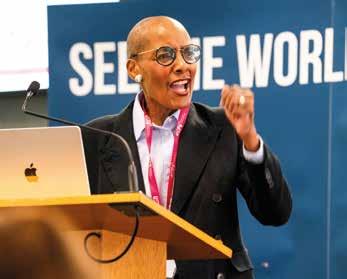
the margins. He emphasised that the current situation is why the Church must not turn away and must advocate in prayer, word and deed.
The Rt Revd Dr Dalcy Badeli Dlamini, Bishop of Eswatini, enriched our time together each day by leading us in Bible studies. She used a Swazi homestead – centred around Grandmother’s Hut (kagogo) – as a metaphor for the Church centring itself around the teachings and life of Jesus. It begs the question, what borders of violence and difference could be broken if we were more Jesus-centred? Starting each day with these Bible studies was a key highlight of the conference – it helped make sure faith was at the centre of our thoughts.
Additionally, three participatory workshops delved deeper into areas related to our theme: gender justice, racial justice, and inclusion led by the Gypsy Roma and Traveller Friendly Churches. We were delighted to welcome contributions from our partner networks who helped us see the world differently.
We ended our time together so revived and energised from the interactions that we had with people of all ages, backgrounds, and traditions and grateful for the time we spent together in fellowship and prayer. It was a time of great reflection but also a time to think about how we can take action, and do our part in removing the borders that exist to enable a strengthened unity in the fellowship of Christ.

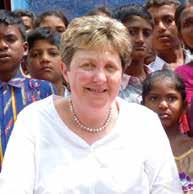
That’s a big claim to make. But Jackie Elton, a participant of USPG’s former Experience Exchange Programme (EEP), looks back on her time in India as a life-changing experience.
After university, I looked to get some international church experience that was far different from what I was used to. Naturally, my vicar put me in touch with USPG. Soon enough I met the lovely Jean Robinson, a missionary for the organisation, who spoke kind and encouraging words. The process was not without complication as the original plan to go to Tanzania fell through. But USPG didn’t abandon me or my dreams. Little did I know that what awaited would change the rest of my life.
“I’m going to connect you with an old friend of mine” Jean explained, adding that a mentor over my time on the exchange would be of particular benefit. The Jamiesons, I soon found out, were a Scottish Canadian couple who had been in India since the mid-1960s. Jo Jamieson had a passion for wanting to make change and we soon became close friends. I learnt that I was to volunteer in a University College in Ahmednagar, a smaller city about 75 miles away from Pune. Being based on my own in Ahmednagar was a valuable immersion process –far from other USPG “EEPs”, I had to rely on my local friends. In Ahmednagar, I found a role teaching extra reading and conversation skills, doing a few lectures, and running a daily children’s play group in the slum areas of the town.
Both in and outside of the classroom, I became familiar with the caste (class) system as well as the legacies of colonialism that presented a challenge to the church in India. The faith side of life in India in the 1980s wasn’t easy. Christians, who often came from poorer backgrounds, were scapegoated in the media, were considered very unimportant in society and were often seen as British collaborators. Despite this, I grew to understand the patient faith of Christians. They had to endure such oppression yet didn’t give up in a society where some thought so little of them. It certainly taught me to appreciate why the Christian faith is so unique and how there is significant power in weakness.
Thanks to the Jamiesons, I learnt much about the development of meaningful partnership. One project in particular trained female health workers to reach out to their communities – a model that worked right through the social system in a way that was radical for India.
I went back to a conventional career lifestyle in the UK, but my original grounding in Ahmednagar was to make all the difference many years later.
One day I watched a TV programme about a medical team going on a trip to do Cleft Lip and Palate surgery in Sri Lanka. This was a condition I had been born with, but, unlike those on the TV, was treated during early childhood. It dawned on me that there were parts of the world, including India, where children were either not treated for cleft lip and palate at all, or treated poorly or too late.
In 1999, I called Jo Jamieson (with whom I had always remained in touch) and we resolved to make a difference. We set up a charity called Transforming Faces. The same principles that I had learned during those six months in India with USPG were to influence the development of Transforming Faces.
Partnership is the bedrock philosophy of Transforming Faces. Treating cleft is not just about surgery but extends to Comprehensive Cleft Care (CCC). From parent support to nutritional care for infants, to safe surgeries and holistic post-surgical care, a CCC treatment pathway is multidisciplinary and appropriately timed for each child’s long-term rehabilitation. Our work extends beyond India and into parts of Southeast Asia, Ethiopia, Uganda, Argentina and Costa Rica to name but a few.
If it weren’t for the encouragement that I received from staff in the office back in the early 80s and USPG’s mission as whole, I would never have gone to India at that time and been changed in that way. It was a relatively short stay of six months, but nevertheless a hugely important one. I am still in touch with some of the “EEPs” of the time, a truly extraordinary group. Even nowadays whenever I return to India, it feels a bit like coming home.
Today, Transforming Faces is one of the most influential cleft lip and palate charities in the world.


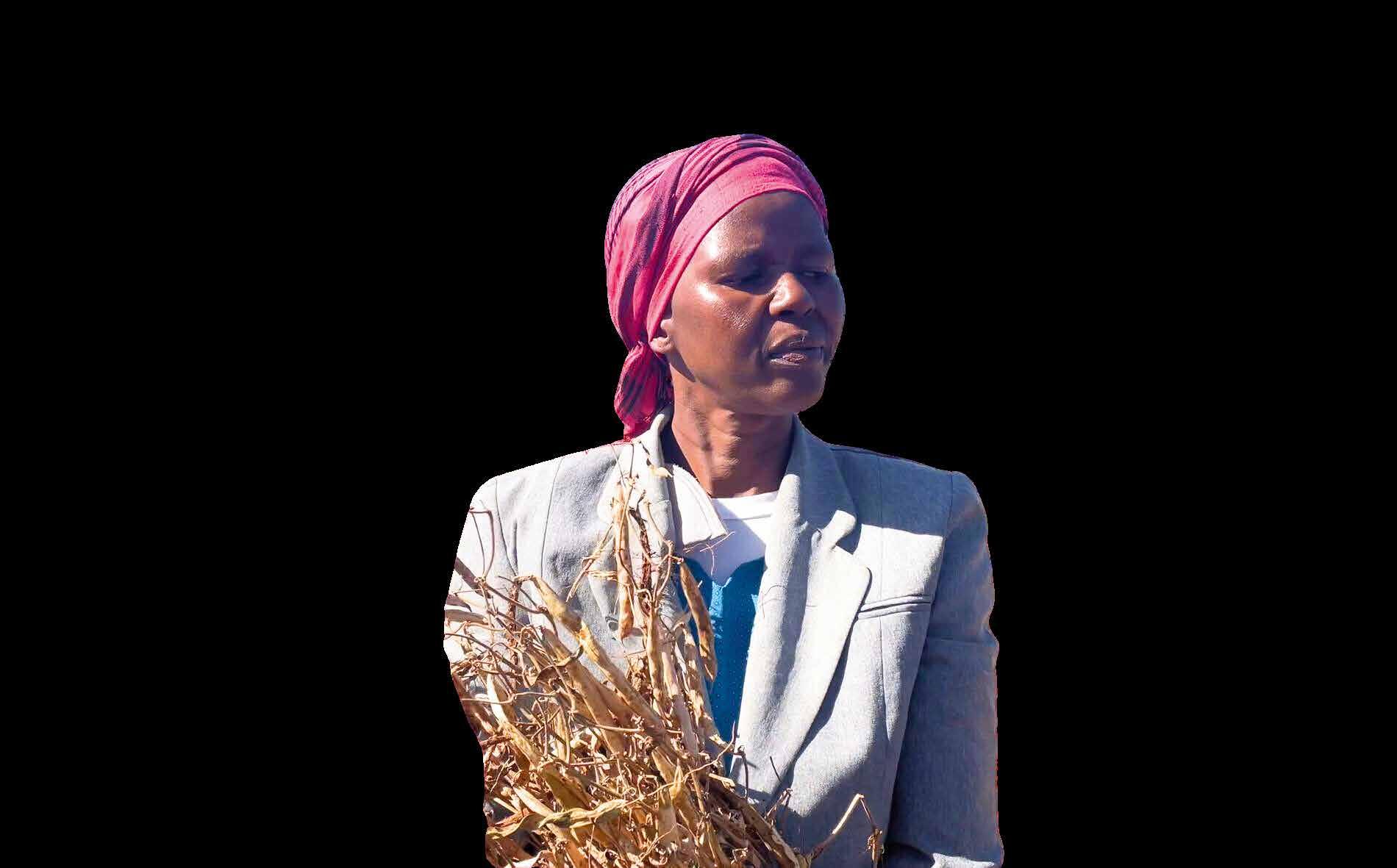

By The Revd David Ridley, St. Michael’s Sittingbourne, Church of England
When The Revd David Ridley heard about the outbreak of war in Ukraine, he knew he had to respond. As a Church of England priest living alone in a moderately-sized vicarage, he reflects here on his experience as a host.
When I received news that Kent County Council were seeking people to host Ukrainian refugees, I decided to fill in an application. Admittedly what followed was a period of anticipation filled with both trepidation and excitement.
After six months without contact, I assumed nothing would happen until, quite out of the blue, I received a call asking whether I would consider hosting a grandmother and a grandson; and having met together with Social Services, we all decided to give it a go.
The grandmother, Olha, a widow, had worked in a senior role in the Ukraine Government and lectured at the University of Kyiv. Her grandson, Mykhailo (known as Mike) was 16 when they joined me. Olha and Mike had lived in Kiev, and at the outbreak of the war had decided to come to the UK as Mike had good English from school. His parents, Olha’s daughter and son-in-law, live in Crimea; Mike had come to live with his grandmother after the Russian occupation.
Olha and Mike had been hosted by a family in the nearby town of Faversham; but after the six month period, to which a host family commits, they needed to find alternative accommodation, and so came to me.
In many ways, it couldn’t have been easier: we got on well together but kept ourselves to ourselves for a lot of the time. Olha and Mike seemed to settle in quickly and were very helpful around the house cleaning and gardening. Olha also loved being in the kitchen and I had breakfast prepared for me every day and was often given typical Ukrainian snacks and meals.
Unfortunately, Olha’s English was not very good, so communication
was difficult (thank goodness for Google Translate) which left her feeling fairly isolated. It was, however, fascinating speaking with her about life in Ukraine. Their flat in Kyiv was in a 23-storey tower block, and after the invasion they often had to shelter in the basement during drone and missile attacks. After leaving, friends and neighbours reported extended periods without electricity or water – a real challenge in a high-rise tower block.
“It was a no-brainer.”
A culture shock for them was the complexity of accessing healthcare in the UK. Olha had a medical condition which meant engagement with the NHS and associated delays; and on one occasion I spent a whole day driving Mike around trying to get a GP appointment for a chest infection. In Ukraine, antibiotics can be purchased over the counter.
After a year, it was time to move on and Olha and Mike now have a flat in Canterbury where Mike continues his studies in the sixth form. For me it was fascinating, fulfilling and demanding – but an experience for which I am very grateful. We remain in touch and good friends.
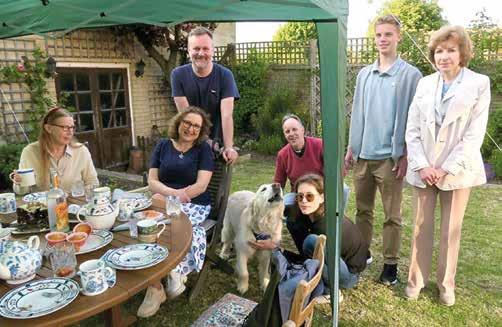

A new five-week study course for churches, clergy study days or small groups exploring migration and the global movement of people.
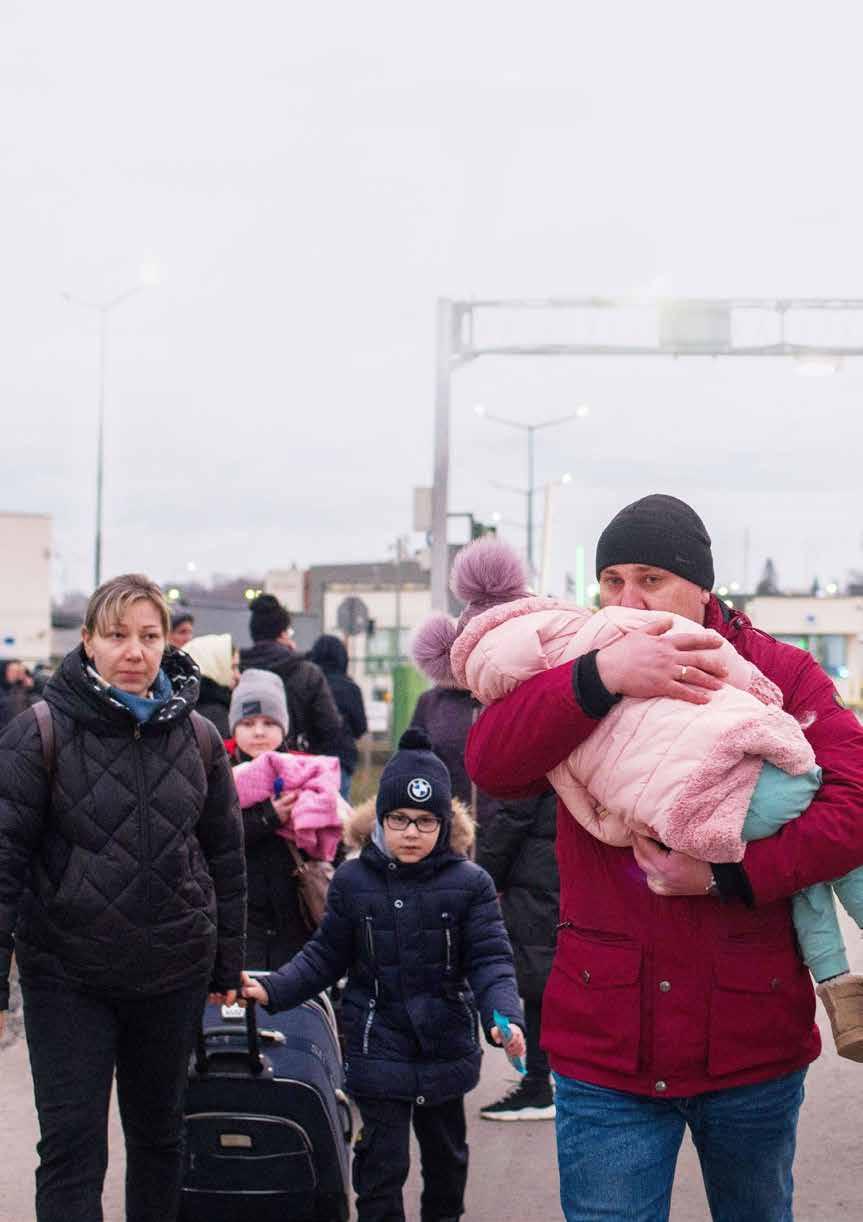
Scan to order

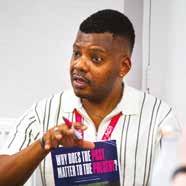
The Revd Garfield Campbell reflects on the theme of de-centalisation raised at the recent United Beyond Borders USPG Annual Conference. Garfield is a PhD student from Jamaica who is researching the legacies of slavery and Anglicanism.
The recently concluded USPG Annual Conference (9-11 July 2024) has enriched and inspired me beyond my expectations. The theme, “United Beyond Borders,” was apt for the times and context in which we live and engage the Missio Dei. The speakers, worship and Bible study leaders, and workshop facilitators challenged me in ways that caused me to wrestle deeply with my positionality within the Body of Christ.
I engaged with people from different countries, with multiple experiences and perspectives. The rich tapestry of interactions has truly been a blessing. And in all this, I am most deeply impacted by comments from the newly consecrated Bishop of Edmonton, The Rt Revd Dr Anderson Jeremiah. I was struck particularly by his notion of “de-centring”.
In my mind, de-centring is a call to recognise and lay aside our privileges to participate in God’s mission of serving others. It reminded me of Jesus at the Last Supper, taking off his robe to stoop and wash his disciples’ feet, as recorded by the Gospel according to St. John. It echoes what St. Paul, in Philippians 2, guides us to do and be: “Let each of you look not to your own interests, but to the interests of others. Let the same mind be in you that was in Christ Jesus, who, though he was in the form of God… emptied himself, taking the form of a servant…(vs: 5-7).
Bishop Anderson spoke eloquently and clearly on the matter. It strengthened my opinion that, at the core, decentring is the best way we can engage in partnership and erase the many borders – geographical and otherwisethat we create, and which keep us artificially separated. In pondering the notion of de-centring, we can erase boundaries and forge real and meaningful partnerships that promote a mission paradigm of what Kelly Brown Douglas calls “just peace”. (see pg 10-11 for a full recap of the speakers and conference).
So this leaves us with the question of what the implications could be for us at USPG, as a mission agency in the 21st century. In essence, I believe, that it is recognising that USPG belongs to all. This is not as simple as it sounds especially in the Caribbean context and in the wake of the Windrush scandal, from which many who were told ’British citizenship is yours by rights’ carry trauma incurred by the later realisation that this was a lie by the government.
Since 1701, London has been the centre from which USPG, with its varying iterations of titles, has pursued its mission in the British Atlantic world. The British Atlantic world refers to countries that have been anglicised through British imperial conquests from the 17th, 18th and 19th centuries still infused with the legacies of those conquests. Having a centre people can look to and operate from can create stability and continuity. However, being anchored to a particular centre where all eyes look and where all hands are outstretched can cause human institutions to take on a divine-like complex. USPG has been centred both
within a particular geographical location and at the very centre of Anglican missionary endeavours for centuries. USPG has also benefitted from the privilege of financial and imperial resources for centuries. The location of the office, bank accounts and archives in London, the centre of British imperial machinations for centuries, are perhaps the most vivid indicator of the privilege in which USPG has been clothed.
USPG’s checkered and contested history is no secret. However, steps are being taken to lament, reckon with and atone for past sins. This is work that takes time – years not months. Within our reckoning, we cannot forget or ignore the good and sincere work in advancing the mission of God in the world that USPG has done and continues to do, adapting its aims and mission to what is now appropriate.
The challenge for USPG is to constantly and critically evaluate its positionality in the mission field. And that is why we are so explicit about rethinking mission and investing in research and theological education – we know to move forward we must learn from the borders that we were responsible for erecting in the past.
Geography aside, de-centring calls for USPG to undertake imaginative and theological work. It means we must continue to grapple with partnership and what that looks like for the organisation now. How can USPG better conceive of itself as an organisation that prioritises listening rather than speaking and leading? How does USPG engage honestly with itself as a partner with certain privileges? How do we partner well considering all of the above?
De-centring can feel overwhelming as it dares us at USPG to scrutinise our privilege and the invisible borders that we have drawn around us that prevent us from accomplishing mutual partnerships and forging a mission of “just-peace”. Taking off our privilege as an organisation heavily clothed in centuries of it will be hard and perhaps uncomfortable. I believe, however, that USPG have a sincere desire to do so, and this work has begun. USPG has a moral and spiritual obligation to de-centre itself to be an authentic partner in “global mission”, uniting with people beyond borders.
• After reading this piece, how would you explain the concept of ‘de-centring’?
• Consider your Church and community – what borders do you see? How might you be able to reach beyond them?
• How can we bring the words and practices of global Christians into our parish churches? Check out our range of study courses at uspg.org.uk.
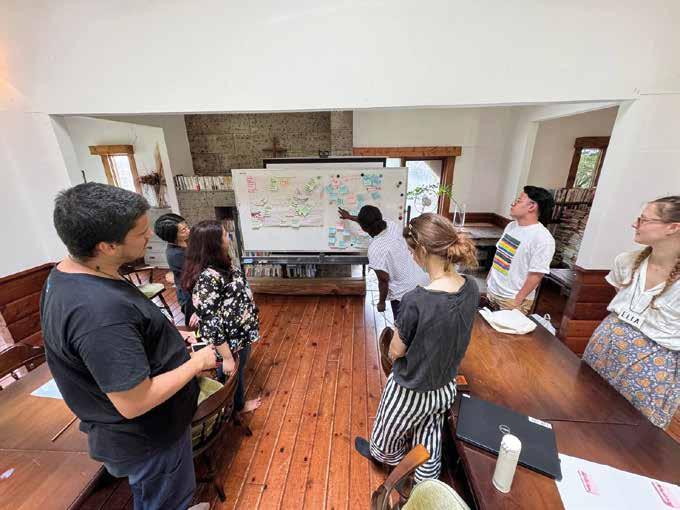
“Taking part in ELA was a life-changing experience.”
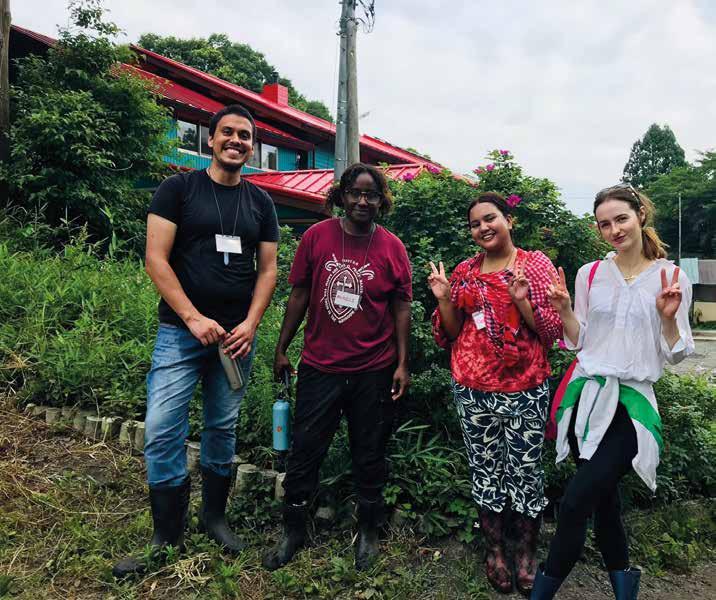
Introducing the Emerging Leaders Academy (ELA). This one-year leadership training programme is presented by USPG in collaboration with the Anglican Communion Youth Network (ACYN).
The ELA aims to provide a cross-cultural learning experience for emerging leaders within the Anglican Communion. The participants are a mixture of young leaders from Bangladesh, Brazil, Palestine, Papua New Guinea, Romania, Japan and the UK. ELA offers the chance for the group to share and explore their faith in diverse contexts while building their leadership skills through exposure to different cultural approaches.
Part one of the programme was a three-week residential course at the Asian Rural Institute (ARI), located just a few hours north of Tokyo. This immersive experience is designed to deepen participants’ understanding of global leadership and foster personal and professional growth.
At ARI campus the youngsters engaged with Food Life Philosophy, an effective way to promote community building, through exercising servant leadership and gaining awareness of one’s role as an advocate for creation care. It consisted of engaging in planting biological (and theological) seeds, preparing the land for the crops (and for the gospel), cooking (sharing love), serving (caring), and sharing food (and laughs).
Their time together offered plenty of space for discipleship and prayerful, spiritual reflection. The programme also promoted Contextual Theological training as an important tool to promote understanding, inclusion and justice.
On the weekends, the group visited local parishes in Utsunomiya, Fukushima and in Tokyo. Most of the Sunday services were in Japanese. “The blessing of the Anglican Communion is that the liturgy is so unique and universally adopted that even during non-English services, it is possible to follow along” says Conrado Piccin, Secretary for ACYN Americas.
In Fukushima prefecture, Bishop Francis Kiyosumi Hasegawa led the group around areas impacted by the 2011 Great Eastern Pacific Earthquake. The earthquake that hit Japan was followed by a huge tsunami and harmful nuclear waste leakage. At the time, Bishop Hasegawa and other Anglican priests and missionaries served at camps providing mental and spiritual assistance to the displaced people. There were over 300,000 displaced people.
Today, 13 years after the disaster, there are still some areas that cannot be visited due to high radiation. Since then, Bishop Francis and the Anglican Church in
“It was a new learning experience. From the very beginning we were challenged by what it means to be a servant leader.”
Japan (The Nippon Sei Ko) have been advocating for rights of compensation and against the opening of new nuclear power plants.
While in Tokyo, the emerging leaders were hosted at the Nazareth Shujokai, where a morning service was held with the local administration to thank them for their hospitality. On Sunday morning there was a visit to Saint Alban’s church, where expatriates in Tokyo worship in English. The service was led by The Revd Margaret Emil, of the Diocese of Canberra & Goulburn, Australia.
Before their return to their home countries, the group had two days off in Tokyo, where they visited Tokyo National Museum and the Meiji-Jingu Shinto shrine. The shrine is located in the heart of Yoyogi Park. It was built in 1920 as a tribute to Emperor Meiji. The path up to the shrine is lined with large barrels of sake (Japanese rice wine) and lanterns. Marking the entrance is a large cypress torrii gate, the tallest in Japan at 12 meters high.
According to Caio Inacio an ELA participant from Brazil, “Taking part in ELA was a life-changing experience. It was a new learning experience about leadership, from the very beginning we were challenged to work as servant leaders”. He added “From everything I’ve learnt, I want to be able to create activities in my local community that empower young people and challenge them to exercise servant leadership too”.
The group will continue meeting online over the next year to continue their learning and explore their next steps in conversation with a mentor.
The Revd Miranga Peiris, Church of Ceylon reports back on his time at the recent ATAP meeting.
From 23 – 26 June 2024 USPG organised the Asia Theological Accompaniment Programme (ATAP) Meeting in Sri Lanka, kindly hosted by The Theological College of Lanka in Kandy. ATAP was launched in 2023, where principals and representatives from various Theological Education Institutions (TEI’s) gathered and deliberated on strengthening and walking together in order to prioritise theological education within the region. This year we welcomed 28 participants representing 14 TEI’s- all of whom were gathered to deepen relationships, discuss and agree on roles and responsibilities on this journey and to learn from one another.
During our time together we had five main areas of focus. Firstly – everyday we started with worship conducted by the students of the Theological College of Lanka and a Bible Study by Bishop Duleep de Chickera.
Secondly – the group spent some time reflecting and sharing each TEI’s key initiatives carried out since the 2023 gathering. I found it encouraging to hear that some students exchange programmes had been created and resource sharing had been done.
Thirdly, as a follow-up from the 2023 gathering, the group looked at the three affirmations of 2023 communique (strengthen prophetic public witness, enhance interreligious learning, solidarity and ecumenical partnership and to further contextualisation and decolonization) reviewing what we felt had been achieved so far and what work there is still to do.
For our fourth area of focus we broke off into small groups to discuss the three commitments of ATAP and how these can be efficiently executed through our TEI’s.
1. Increasing Collaboration and ResourceSharing – How TEI’s can share material, knowledge and expertise, offering courses in collaboration, facilitating
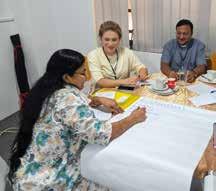
student and faculty exchange. Some faculty members are willing to offer themselves during their sabbatical.
2. Strengthening Inclusive Leadership – Importance of encouraging lay leadership, how TEI’s develop and support second line leadership, how the TEI’s are promoting inclusive leadership, what are the challenges and opportunities.
3. Improving Institutional Resilience and Sustainability – Ownership of theological education by the churches, faculty development programs.
We also took time to listen to case studies from participants, sharing some best practices on improving institutional resilience and sustainability. This was very helpful especially in terms of funding; including how TEI’s can reach out to many donors across the globe for scholarships. It was encouraging to hear that many TEI’s are emphasising on the ecological aspects and shape their institutions to be more eco-friendly.
The fifth area is where all participents developed a road map for the next threefive years by identifying and prioritising areas for strengthening and development. Plans were developed using the main three commitments as a structure. Participants discussed and agreed different roles and responsibilities for their TEI’s in order to action their plans as well as timelines for each initiative and how the stakeholder will contribute.
The ATAP 2024, was indeed a fruitful and enriching time spent together listening and sharing with each other, a time where we were able to critically look at ourselves and look at avenues where we can be united beyond our borders for the furtherance of the Kingdom of God. Please pray for the group as we look to put our faith, and plans, into action.
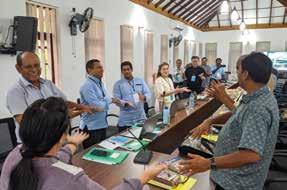
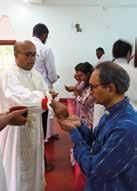
“If one member suffers, all suffer together with it; if one member is honoured, all rejoice together with it.” In the spirit of 1 Corinthians 12:26, we continue to express our solidarity with our sisters and brothers in the Holy Land, we bring you updates from our partner – the Episcopal Diocese of Jerusalem – whose ministry of hope and healing continues despite harrowing circumstances.
“Special greetings and blessings from Jerusalem to our partners around the world [who] are working hand in hand in bringing the message of hope and victory in Jesus Christ. Your prayers and support [are] deeply felt within our diocese, our communities and people who are giving thanks for the body of Christ that is manifested through your generosity and your love.” – The Most Revd Hosam Naoum
, Archbishop of the Episcopal Diocese of Jerusalem.
On Sunday 7 July 2024 it was announced that the Al Ahli Arab Anglican Hospital in Gaza – the Diocese of Jerusalem’s main healthcare facility – was forced to close its operations as the area surrounding the hospital was declared a Red Zone following the escalation of drone firing. The closure of the hospital at the time exacerbated the already devastating situation in Gaza and exposed the vulnerable to greater danger and precariousness.
After being non-functional for a few weeks, the hospital has since reopened. We rejoice and praise God for this development and continue to pray for the situation, one that is evidently complex and changeable.
Later in July, The Revd Dr Duncan Dormor joined over 200 global Christian leaders, bishops and executive leaders in a public statement by Churches for Middle East Peace. The letter urges world powers to end complicity in the ongoing violence and atrocities committed in Gaza as a part of the ongoing war between Israel and Hamas. It also calls for an immediate permanent ceasefire, work for the release of hostages and prisoners held without due process of law alike, the unimpeded flow of humanitarian aid to civilians, and halting all weapons and ammunition transfers to Israel to ensure they are being used according to international law.
In August, the Archbishop of Canterbury, The Most Revd Justin Welby published a similar statement saying that the State of Israel has been “denying the Palestinian people dignity, freedom and hope” – it also stated that ending its occupation of Palestinian territory is “a legal and moral necessity”.
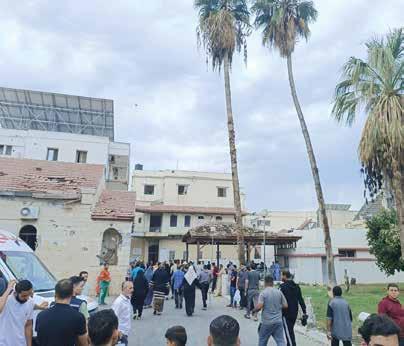
USPG is part of a group of international Anglican and ecumenical relief and development agencies, convened by the Anglican Alliance, that support the Diocese of Jerusalem in providing humanitarian assistance to vulnerable people through its institutions in Gaza and the West Bank, including Al Ahli Hospital. If you’d like to donate, please visit the website link below:
www.rapid-response.raisely.com
Most importantly we want to continue to assure the Diocese of Jerusalem of our steadfast solidarity at a time where there is a “growing sense of abandonment amongst Palestinian Christians”, as expressed by Father Fadi Diab, Rector of the St Andrew’s Parish in Ramallah at the Church of England’s General Synod in York.
We remember in our thoughts and prayers all those who will face the consequences of these developments and pray for an end to all forms of violence in the region.
Find out more: www.uspg.org.uk/stories/ news/support-for-the-holy-land.php


Bishop
“As a leader, female or not, do your best. And let God do the rest.”
The Rt Revd Dalcy Dlamini
We were delighted to be joined by The Rt Revd Dr Dalcy Dlamini, Bishop of Eswatini, Anglican Church of Southern Africa at our Annual Conference in July 2024. Here she reflects on the conference and her time in the UK.
It all began with an invitation from USPG earlier this year where I was asked to conduct Bible studies for people of God coming from all over the globe. This came with mixed feelings because of the different contexts we would be coming from and the different theological backgrounds. However, I accepted the challenge.
After much prayer and meditation, I decided to put together a contextual Bible study which means less talking from the front and more engagement with the participants. To frame the Bible studies, I used a model of an African Homestead, focusing on the grandmother’s hut (kagogo’s) that is found at the centre of every village. In the African context, grandmother’s hut is a sacred space where conflicts are resolved, negotiations happen, discipline imposed and learning encouraged. Ultimately, it serves as a safe haven for many, both children and adults.
We compared grandmother’s hut to the cross of Jesus and her role as that of the person of Jesus Christ in the Christian faith. Jesus’ cross is at the centre of our faith and He should always be our unifier as God’s people. The cross of Christ should always point us to God, thus encouraging us to live in harmony with one another.
Over the three days, we read Isaiah 60:18 which inspired us to envision a future of peace and praise. Galatians 3:26-28 highlighted our unity in Christ despite the evils that divide us and Deuteronomy 10:18 urged us to care for widows and orphans, prompting discussions on practical ways to support people in need in our communities.
Alongside the Bible studies, I participated as a panellist in the gender justice workshop where I shared about my space of influence as a woman in leadership. What struck me as a female leader coming from Africa is the common experiences wherein women are often assumed to be over-emotional and unable to make decisions for themselves. As we heard from The Revd Anne Futcher, Diocese of Cyprus & Gulf, The Revd Suchitra Behera, Church of Bangladesh, The Revd Rosie Addis, Scottish Episcopal Church and The Revd Dr Bianca Daébs, Igreja Episcopal Anglicana do Brasil, I was encouraged by the impact these leaders are making in their dioceses in spite of the opposition they face.
Once the conference had concluded, I was also given an opportunity to visit Gloucester Diocese where I was welcomed by the Mayor and the Sheriff of Gloucester. The Rt Revd Rachel Treweek, Bishop of Gloucester, was kind enough to invite me to a garden party to celebrate the 30th anniversary of women’s ordination in the Church of England. Also, as a nod to our discussions about justice in Deuteronomy, I was also taken around the diocese where I was able to experience the different ministries to the homeless, refugees and asylum seekers.
In conclusion, I would like to thank each one of you for your love, friendship and hospitality. I am looking forward to our continued partnership. With thanks to USPG and Canon Nikki Arthy, Diocese of Gloucester, for making this trip possible. May God bless you all richly!
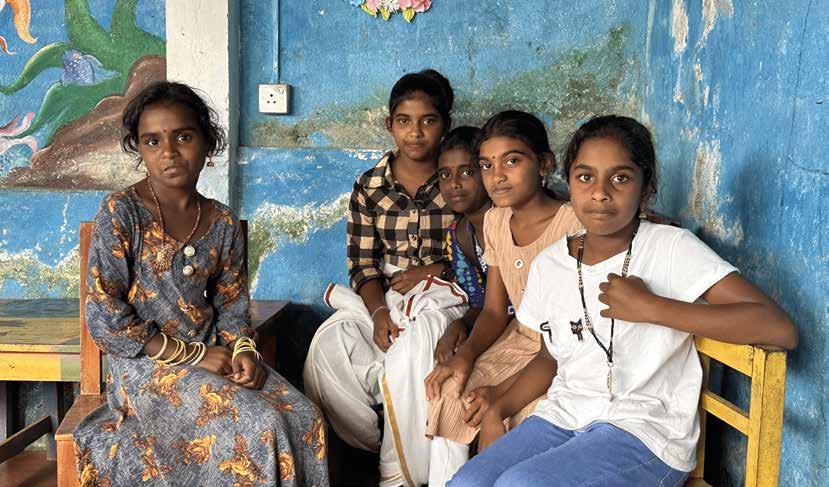
Having a will gives you peace of mind for the future. It gives you the opportunity to provide for your family and loved ones, as well as showing your support for the causes you care about. Leaving a gift in your will to USPG can inspire future generations in the global church.
Legacy gifts enable our partners to fund long-term development programmes, such as The Plantation Community Development Programme from The Church of Ceylon, Diocese of Colombo. Their vital work with women and children from the tea plantation communities in Sri Lanka is transforming lives and lifting people out of poverty.
Many of the people who live and work in Sri Lanka’s many tea plantations have endured years of isolation from Sri Lankan society. This has led to poor living conditions for families, limited medical care and a lack of education for children.
The Plantation Community Development Programme provides education for children, including preschools, non-formal education classes, seminars and scholarships for government exams as well as for A-Level and University students. The programme also offers medical support to pregnant mothers and advocates for human rights of the tea plantation communities including improved living conditions.
By leaving a gift to USPG in your will, you can transform lives in Sri Lanka’s tea plantation communities for years to come.
You can inspire the next generation to create the future they want – for themselves, their families and their communities.
By enabling children to access education and learn about their rights, your legacy can be their future.
Writing or updating a will is simple – and even free – to do.
USPG has partnered with Farewill, to offer our supporters a free will writing service. Farewill’s online will writing service is straightforward, quick and stress free, just log on to www. uspg.org.uk/legacy. You can write your will in as little as 30 minutes with expert support via web chat or over the phone, seven days a week. Once you have answered the step-by-step questions, your will is checked by a team of expert will writers and printed so you can sign it alongside your witnesses.
What we create has impact and adds value to the people and causes we are passionate about. We may not be able to control everything in life, but we can be sure of the gifts that we leave behind. Leave a gift in your will for USPG today and support future generations through the work of our global church partners.
Visit www.uspg.org.uk/legacy
Dates for your diary
Across the year, we host many events to share the important work of USPG and the amazing resources we create for churches and church leaders to grow in their understanding of mission. Here are a few dates to note:
Sunday 8 December, 6pm, St John’s Waterloo, Waterloo Rd, London SE1 8TY
A great opportunity to spend a day – or the weekend – in London and finish it off with a Carol Service, mince pies and mulled wine.
17 February 2025, 11am, St James’ Church, Piccadilly, UK
Event to remember our Founder, The Revd Dr Thomas Bray, with a Eucharist and Lunch. It’s always a special time to commemorate our founder alongside our friends at SPCK. Please don’t miss out. The event is free, but please look out for invitations to register early next year.
6 April 2025, London, UK USPG are back again as a charity partner.
If you or someone you know would like to run for USPG, raising awareness and support for the ministry of our global partners, please contact Fiona at fionao@uspg.org.uk.
You’re also welcome to come along, put on ‘the USPG pink’ and cheer the runners on.
1 July – 3 July 2025
The Hayes Conference Centre, Swanwick

USPG – 5 Trinity Street, London SE1 1DB 0207 921 2200 www.uspg.org.uk
Follow us on @USPGglobal
Editor: Rachel Weller
Senior Editor: Rachael Anderson communications@uspg.org.uk
Charity number: 234518
